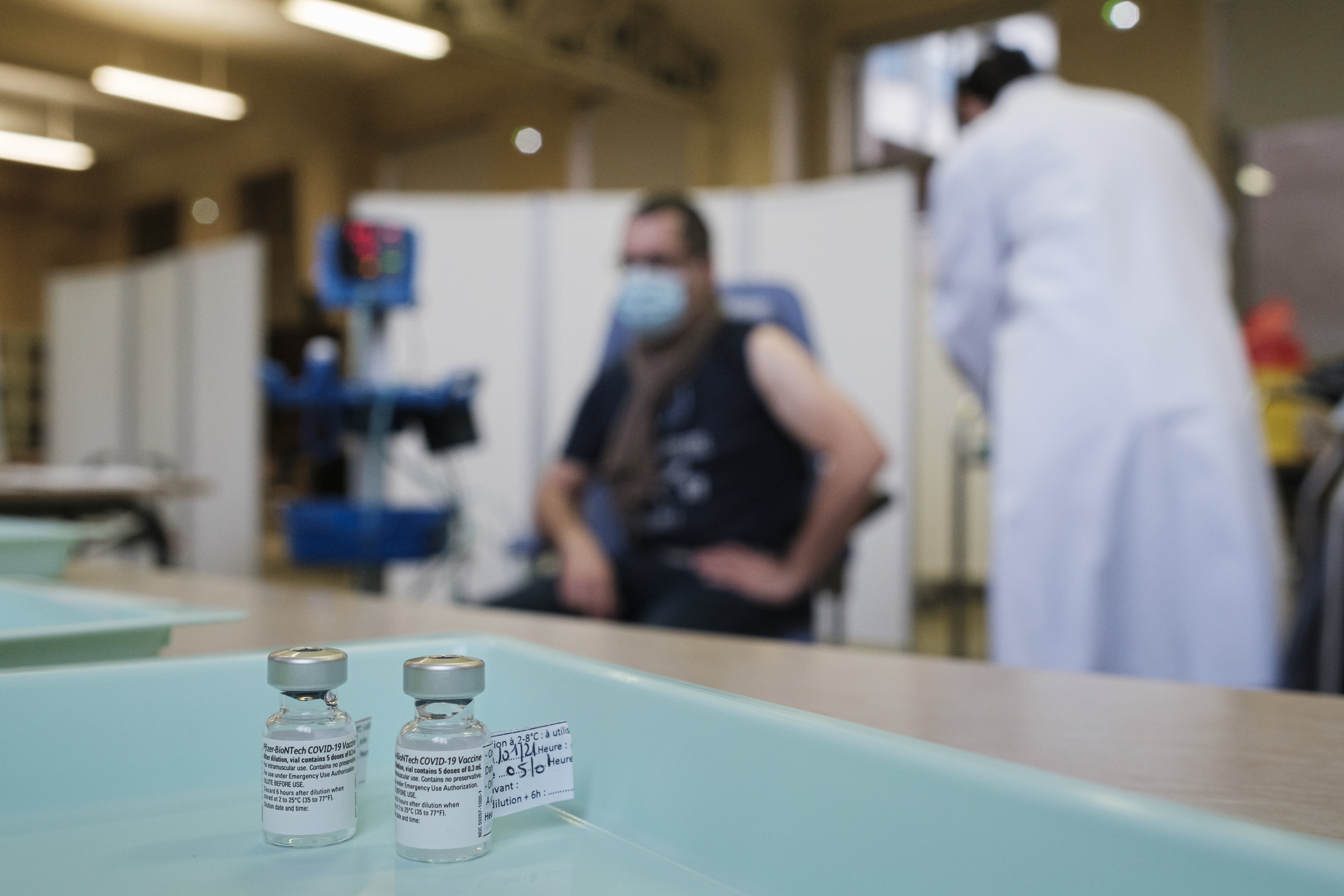Is it the appeal of the Minister of Health, who split on March 5 with a letter urging caregivers to be “quickly” vaccinated against the coronavirus, which has moved the lines?
One thing is certain in any case, health professionals have flocked to vaccination centers in recent weeks, where there are more than 530,000 caregivers bitten in a month.
While vaccination has been open to all health professions since February 6, in its weekly bulletin of March 16, Public Health France announced that "44.2% of health professionals [had] received a first dose of vaccine against Covid-19 and 24.9% [...] two ”.
A month later, in its report of April 13, the institution puts forward a much stronger estimate: 68% of health professionals have now received their first injection and 29.2% the second.
READ ALSO>
"Finally, I'm going to get vaccinated": these French people who have changed their minds
Many causes, logistical and psychological, can explain this rebound.
First, the mistrust of caregivers has been able to decline, as can be seen in the general population, as the vaccination campaign progresses and the injections carried out since the end of December.
"I was resistant to the idea of getting vaccinated"
Anaïs, a nursing assistant in an Auvergne Rhône-Alpes nursing home, is part of this new wave of first-time vaccinees who are initially skeptical, but difficult to quantify.
The young woman, who received her first dose of the Moderna messenger RNA vaccine 15 days ago, bluntly blurted out: "I was resistant to the idea of getting vaccinated, because we don't have enough perspective. .
She explains that she has mostly changed her mind for fear of not being able to travel in the coming months.
Anaïs also slips that she would not have jumped so easily if she had had to be administered the AstraZeneca vaccine, implicated in the occurrence of 23 cases of rare thromboses and coagulation abnormalities out of 2.7 million injections in France.
“There are questions to ask and it's scary,” breathes the nursing assistant.
READ ALSO>
"I do not trust": these caregivers who doubt the vaccine against Covid-19
For Thierry Amouroux, spokesperson for the National Union of Nursing Professionals (SNPI), the fact that this Anglo-Swedish vaccine is no longer offered to caregivers under the age of 55 could indeed have changed the situation.
But not necessarily because of the tiny risk of thrombosis.
A rejection of the AstraZeneca
When this vaccine was briefly offered to all health professionals, between February 6 and March 19 and even before the increase in these serious side effects, it was strongly rejected. "Its effectiveness is estimated at 76% in the field, ie 20% below the messenger RNA vaccines Pfizer and Moderna", recalls the trade unionist, who expresses his feeling of being "endangered by the government". “We are overexposed to the virus at work, we are frequently in contact with infected people with a high viral load, so we need the most effective vaccine. "
A thirty-year-old nurse from Pays de la Loire, who received his first dose of Moderna a month ago and describes himself as "more fearful than reluctant" vis-à-vis vaccination, confirms this rejection of the Anglo-Swedish serum.
“It's not so much in relation to the side effects, which are serious, of course, but limited, but I find AstraZeneca less effective compared to the available data.
"
Infected caregivers and lack of doses
Thierry Amouroux also points to “technical obstacles”.
First, some of the caregivers were infected during the epidemic and therefore had to wait the three to six months recommended by the High Authority for Health before being able to receive a first injection.
This state of affairs is particularly visible in the latest data from SPF.
The regions of western France, the least impacted by the virus since the fall, reach rates of first injection in caregivers of around 90% on average, while Ile-de-France is at 67% and the Provence Alpes Côte-d'Azur region, which is also very affected, at less than 60%.
There is another very simple reason that could explain this recent take-off in injections: the gradual fluidity of the vaccination campaign.
"Caregivers are concerned by the same framework as all citizens: they have to make an appointment, go to a vaccination center ... and like everywhere, the big problem is the lack of doses", notes the door. -speak of the SNPI.
The expected delivery, from this month of April, of seven million additional vaccine doses of the Pfizer / BioNTech vaccine will perhaps allow a new rebound of these vaccinations within the health professions. Until flirting with 100% of immune caregivers, as the health authorities dream of? A large majority of caregivers who are still not vaccinated say they want to receive an injection quickly, according to data from Public Health France. The organization reveals that among liberal health professionals who have not yet received their first dose, "78% said they intended to be vaccinated certainly or probably as soon as possible".





